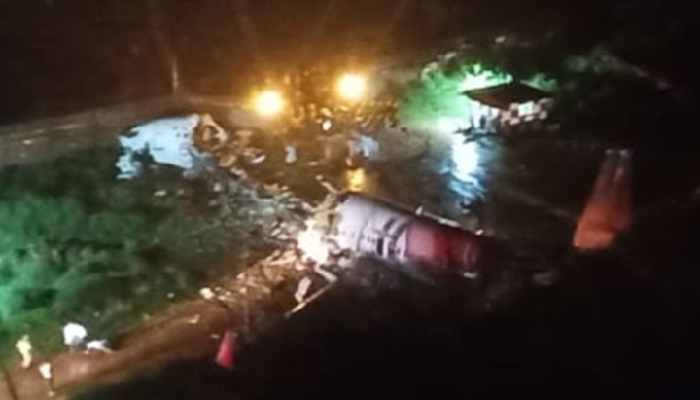Kolkata, Jan 1: US-based Bangladeshi author and playwright Sharbari Zohra Ahmed feels that the people of the country of her origin are more alike than different from Indians as they were originally Hindus.
But Bangladeshis now want to forget their Hindu roots, said the author, who was born in Dhaka and moved to the United States when she was just three weeks old.
Ahmed, who is the co-writer of the Season 1 of 'Quantico', a popular American television drama thriller series starring Priyanka Chopra, rues that her identity as a Bengali is getting lost in Bangladesh due to the influence of right-wing religious groups.
"How can Bangladesh deny its Hindu heritage? We were originally Hindus. Islam came later," Ahmed said while speaking to PTI here recently.
"The British exploited us, stole from us and murdered us," she said about undivided India, adding that the colonialists destroyed the thriving Muslin industry in Dhaka.
Ahmed said the question of her belief and identity in Bangladesh, where the state religion is Islam, has prompted her to write her debut novel 'Dust Under Her Feet'.
The British exploitation of India and the country's partition based on religion has also featured in her novel in a big way.
Ahmed calls Winston Churchill, the British prime minister during World War II, a "racist".
"He took the rice from Bengal to feed his soldiers and didn't care when he was told about that.
"During my research, I learnt that two million Bengalis died in the artificial famine that was created by him. When people praise Churchill, it is like praising Hitler to the Jews. He was horrible," she said.
The author said her novel is an effort to tell the readers what actually happened.
"Great Britain owes us three trillion dollars. You have to put in inflation. Yet, they (the British) still have a colonial mentality and white colonisation is on the rise again," Ahmed, who was in the city to promote her novel, said.
The novel is based in Kolkata, then Calcutta, during World War II when American soldiers were coming to the city in large numbers.
The irony was that while these American soldiers were nice to the locals, they used to segregate the so-called "black" soldiers, the novelist said.
"Calcutta was a cosmopolitan and the rest of the world needs to know how the city's people were exploited, its treasures looted, people divided and hatred instilled in them," she said.
"Kolkata was my choice of place for my debut novel since my mother was born here. She witnessed the 'Direct Action Day' when she was a kid and was traumatised. She saw how a Hindu was killed by Muslims near her home in Park Circus area (in the city)," Ahmed said.
Direct Action Day, also known as the Great Calcutta Killings, was a massive communal riot in the city on August 16, 1946 that continued for the next few days.
Thousands of people were killed in the violence that ultimately paved the way for the partition of India.
'Dust Under Her Feet' is set in the Calcutta of the 1940s and Ahmed in her novel examines the inequities wrought by racism and colonialism.
The story is of young and lovely Yasmine Khan, a doyenne of the nightclub scene in Calcutta.
When the US sets up a large army base in the city to fight the Japanese in Burma, Yasmine spots an opportunity.
The nightclub is where Yasmine builds a family of singers, dancers, waifs and strays.
Every night, the smoke-filled club swarms with soldiers eager to watch her girls dance and sing.
Yasmine meets American soldier Lt Edward Lafaver in the club and for all her cynicism, finds herself falling helplessly for a married man who she is sure will never choose her over his wife.
Outside, the city lives in constant fear of Japanese bombardment at night. An attack and a betrayal test Yasmine's strength and sense of control and her relationship with Edward.
Ahmed teaches creative writing in the MFA program in Manhattanville College and is artist-in-residence in Sacred Heart University's graduate film and television programme.







Comments
Is she trying to take over Shoorpanakhi Taslim Nasreen?
Add new comment